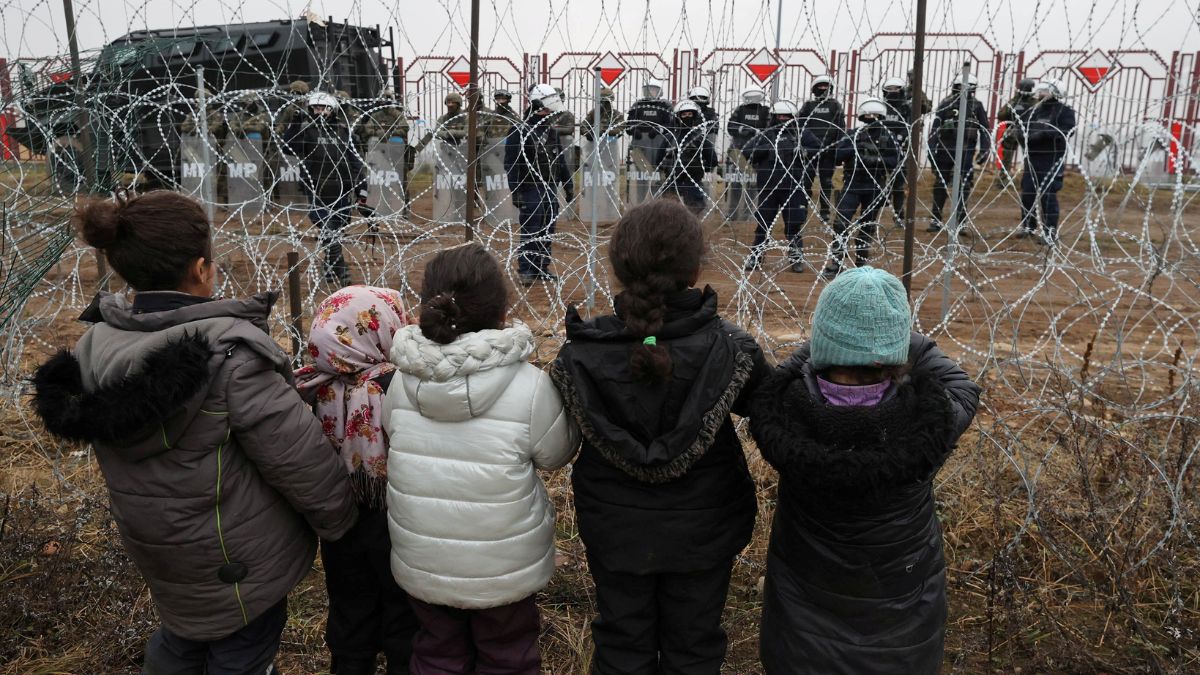The European Union is poised to make a decisive vote Wednesday regarding a comprehensive overhaul of its immigration policies, signaling a significant shift towards stricter entry procedures for asylum-seekers and a collective sharing of responsibility among member states.
The European Parliament is set to deliberate on a series of laws integral to the bloc’s migration and asylum pact, which stems from a proposal put forth by the European Commission in September 2020.
This ambitious overhaul, the culmination of years of internal strife and negotiations, is slated to be implemented from 2026 upon full adoption.
In conjunction with these legislative efforts, the EU has been actively engaging in agreements with external nations to curb the flow of migrants departing from their territories in pursuit of European shores.
Against the backdrop of escalating asylum applications within the 27-nation EU, which surged to 1.14 million last year, the highest recorded since 2016, there has been a corresponding uptick in irregular migrant entries, reaching 380,000 in the same period according to data from the EU’s border and coast guard agency Frontex.
While the migration and asylum pact represents a concerted effort to address these challenges, it has encountered opposition from disparate quarters, including the far right, the far left, and segments of socialist lawmakers, each voicing distinct concerns and objections.
Impact Shorts
More Shorts“After years of impasse, the new migration rules allow us to regain control over our external borders and reduce pressure on the EU. State authorities, not smugglers, have to decide who enters the European Union,” said Manfred Weber, head of the biggest political group in the European Parliament, the centre-right European People’s Party.
NGOs and migrant charities have come out against the reform, especially its provision creating border facilities to accommodate asylum-seekers and quickly send back those deemed ineligible, which they fear will lead to systematic detentions.
The reform largely retains the basic rule in force under which the first EU country in which an asylum-seeker arrives is responsible for their case.
But it adds a “solidarity mechanism” that requires all EU countries to help front-line states such as Italy and Greece when they come under pressure by either taking in some of the asylum-seekers or providing an equivalent financial contribution.
- ‘Inflammatory topic’ -
A French centrist lawmaker in the European Parliament, Fabienne Keller, who shepherded one of the texts, called the pact “very balanced” and “a big improvement over the current situation”.
“There are better checks on flows of irregular migration through the border procedures and more solidarity,” she said.
But she acknowledged it was “a hugely inflammatory topic” and criticised far-right lawmakers for “trying to panic everybody” over the changes.
The parliament’s vote will not be the last step for the pact, as the technical application of its procedures still need to be defined, Keller said. They include how to organise the border centres and supply them with sufficient resources, translators and police officers.
Another controversial point is a provision to send asylum-seekers to “safe” third countries.
A left-wing lawmaker, Raphael Glucksmann of France, said “that would allow asylum-seekers likely to obtain asylum in an EU country to be sent to transit countries”.
He criticised a compromise under which some EU nations would be able to offset their financial obligations under the solidarity mechanism if they helped pay for tougher border security in another EU country.
“That upholds the idea of a ‘safe third country’ which would apply to some countries that are ‘safe’ only by that label,” he said. “It’s another step towards the outsourcing of our borders.”
On the far right, lawmaker Jean-Paul Garraud of France said “the outer borders of the EU are like sieves and nothing has been done to change that”.
One of the few changes the far right favoured was a system to take the biometric data of each arriving asylum-seeker and put it into an EU database called Eurodac, he said, though he argued it would do little to stop mass irregular immigration.
“These mechanisms are just smokescreens,” he said. “They will be ineffective and won’t be able to be applied given the scale of the migration flows.”
With inputs from AFP
)